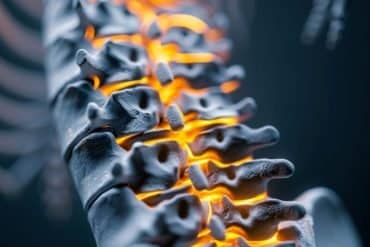Children who lived in Juarez, Mexico — once dubbed the murder capital of the world — in 2010 have high levels of behavioral and emotional problems, according to new research by Texas Tech University Health Sciences Center El Paso (TTUHSC El Paso).
The finding suggests that the mental health of children was negatively affected by exposure to the mass murders and acts of terror, like kidnappings, bombings and decapitations, related to the city’s drug violence.
“I am very worried about the children who lived in Juarez when the drug violence peaked a few years ago,” says Marie Leiner, Ph.D., a pediatric researcher at TTUHSC El Paso who led the study and gathered data about the mental health of youth living on the U.S.-Mexico border.
For the study, Leiner compared the mental health of children living in El Paso, Texas to that of children living in its neighboring city Juarez. The idea was to compare a relatively safe city to one that experienced excessive violence. In 2010, more than 3,000 people were murdered in Juarez, while El Paso recorded just five homicides, according to the Chihuahua state attorney general’s office and the El Paso Police Department.
Data was gathered from more than 600 child behavioral checklists (CBCL) that had been filled out by parents in Juarez and El Paso in 2010. The CBCL is a well-known questionnaire used to identify the frequency of behavioral and psychosocial problems in children. Each child was between the age of 18 months and 5 years old and was classified as low-income.
After analyzing data collected from both groups, Leiner found that the prevalence of issues like depression, aggression, anxiety, withdrawal and attention deficit disorder were three times higher in children living in Juarez. Children in the Mexico group had significantly high scores even when compared to children with brain injuries, hearing impairments and those whose parents abused cocaine, alcohol and other drugs.
“I’m not saying that kids in El Paso are not affected by violence, but they didn’t have this exposure to violence everywhere in their neighborhoods; they didn’t attend their family funerals and they didn’t go to school to learn that their friends’ families were murdered,” Leiner says.

Leiner admits that children and their families were not directly asked about their personal experiences with drug violence and that the study assumes those living in Juarez were indirectly exposed to the violence. She says, however, that the magnitude of the city’s violence in 2010 was unavoidable. In addition, mere exposure to the news could be traumatic and frightening because the Mexican media does not censor images of extreme acts of violence like mutilations.
The study is published in the journal Salud Mental and Leiner recommends that children in Juarez who have been exposed to trauma need treatment to diminish mental health problems. She adds that behavioral issues like aggression may become an issue as the children grow older.
“Exposure to violence makes you aggressive,” Leiner says. “And if you want to reduce aggression, you need to intervene at a very young age.”
Source: Veronique Masterson – Texas Tech University Health Sciences Center, El Paso
Image Source: The image is credited to TTUHSC El Paso
Original Research: Abstract for “The emotional and behavioral problems of children exposed to poverty and/or collective violence in communities at the Mexico-United States border: A comparative study” by Marie Leiner in Salud Mental. Published online December 2015 doi:not available
Abstract
The emotional and behavioral problems of children exposed to poverty and/or collective violence in communities at the Mexico-United States border: A comparative study
Background Collective violence attributed to organized crime has shown to be responsible for a considerable burden of physical and mental health morbidity among youth.
Objective To compare the emotional and behavioral problems of children exposed to early childhood poverty and/or collective violence in communities at the Mexico-United States border to children exposed to other social and health risks.
Method A cross-sectional study was carried out with individuals living in poverty at two sites at the Mexico-United States border. Individuals who responded once to the Pictorial Child Behavior Checklist (P+CBCL) in Spanish were selected randomly from clinics in a metropolitan area of El Paso, Texas, United States (poverty alone group), and Ciudad Juarez, Chihuahua, Mexico (poverty plus collective violence group). In addition, emotional and behavioral problems present in these groups were compared with available published emotional and behavioral CBCL scales of children exposed to other social and health risks.
Results Children exposed to both poverty and collective violence had higher emotional and behavioral problem scores as measured by the P+CBCL than those exposed to poverty alone. In addition, compared with children who were brain-injured, hearing impaired, or whose parents were exposed to drugs or alcohol, the poverty and collective violence group had higher levels of emotional and behavioral problems.
Discussion and conclusion Systematic detection and treatment of children as young as 18 months exposed to trauma are necessary to diminish the mental health problems caused by the collective violence attributed to organized crime.
“The emotional and behavioral problems of children exposed to poverty and/or collective violence in communities at the Mexico-United States border: A comparative study” by Marie Leiner in Salud Mental. Published online December 2015 doi:not available






